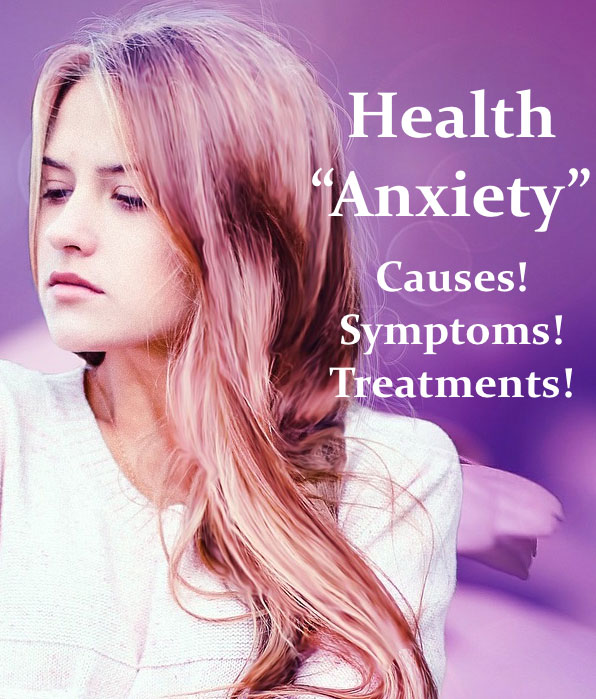We live in a world and age where health anxiety is wreaking havoc in the lives of many individuals. According to The Guardian.com, this condition can literally ruin lives. Health anxiety appears when an individual worries too much about his health, thinking that he is sick or that is affected by a certain condition, although the reality is that he is perfectly fine.
Most of us worry from time to time about our health and well-being, but there are some people that are unable to do anything except worry. The huge problem is that the number of these people is on the rise. Although they are perfectly fine, their worry is so intense that in most cases it leads to great distress, a state of nervousness and panic. Some people may even have unexplained physical symptoms, such as headaches or chest pain.
If you think you might be worrying too much about your health or about your future, you should definitely read on. Also keep reading if you are interested to find more about health anxiety and health anxiety symptoms.
What Causes Health Anxiety?
People may start worrying for many reasons. While some may be going through a difficult period in their lives, others might experience the sorrow of losing a dear one or a family member. Personality can also play an important role in this process. If you are a worrier and a pessimistic person, you are definitely more exposed to health anxiety than someone else that has a stronger personality.
Sometimes health anxiety is the direct result of a mental illness, such as anxiety, depression, low self-esteem or negative thinking patterns. Regardless of the cause, the good news is that health anxiety and all its related symptoms can be treated.
The Vicious Cycle of Health Anxiety
This condition (also called hypochondria) can be observed when studying the vicious cycle created by it. What triggers this cycle is more than often a though or some news about a health condition. The next thing you notice is that you are worrying too much, imagining things. You start envisioning yourself having that condition and you shift your focus from the mind to the body. Then your body begins to react to your thoughts and you start feeling anxiety and fear, complemented by various physical sensations of adrenaline response.
You will then start checking your body for certain signs of illness, such as bumps or rashes. Eventually, if you find something, all your fears will resurface and you will experience even more fear and anxiety. You will soon become bound to your own fears. You may then fall into one of the following two extremes:
Avoidance Behavior: you will end up avoiding GP appointments, medical TV programs, or other resources that might expose your condition. You will also avoid activities and sports that are known to worsen your condition, even though most doctors agree that exercise helps.
Seeking Constant Reassurance: in this instance, you will obsessively research for more information about your presumed illness and you will always book frequent GP appointments.
10 Health Anxiety Symptoms
This condition is often associated with several symptoms. Some of the most common are:
- Strange: you feel strange, as though you are not a normal human being, but one from another universe.
- Unsettled: you just have that feeling that you need something more.
- Tense: you are not tense only at the workplace but in all your relationships with those around you.
- Worried: you are always worried about everything, especially your health condition.
- Anxious: you are always anxious to do certain things and you are desperately trying to find a solution to your so-called problem.
- Nervous: you are slightly nervous throughout the day and nothing seems to calm you down.
- Frightened: you are afraid of the future and you are frightened by what other people might say if they find out you are sick.
- Stressed: nothing seems to be going right.
- You have a strange feeling of unreality: you have problems trying to determine which feeling is real and which one is not
- Panicky: you experience frequent panic attacks and you have a mindset that is easily affected by panic.
The Bottom Line
Health anxiety is definitely a huge problem, especially in our modern society where people are frightened by so many rumors of deadly diseases. If you have noticed one of the symptoms of this condition, try to help yourself by using various natural cures and holistic methods.
